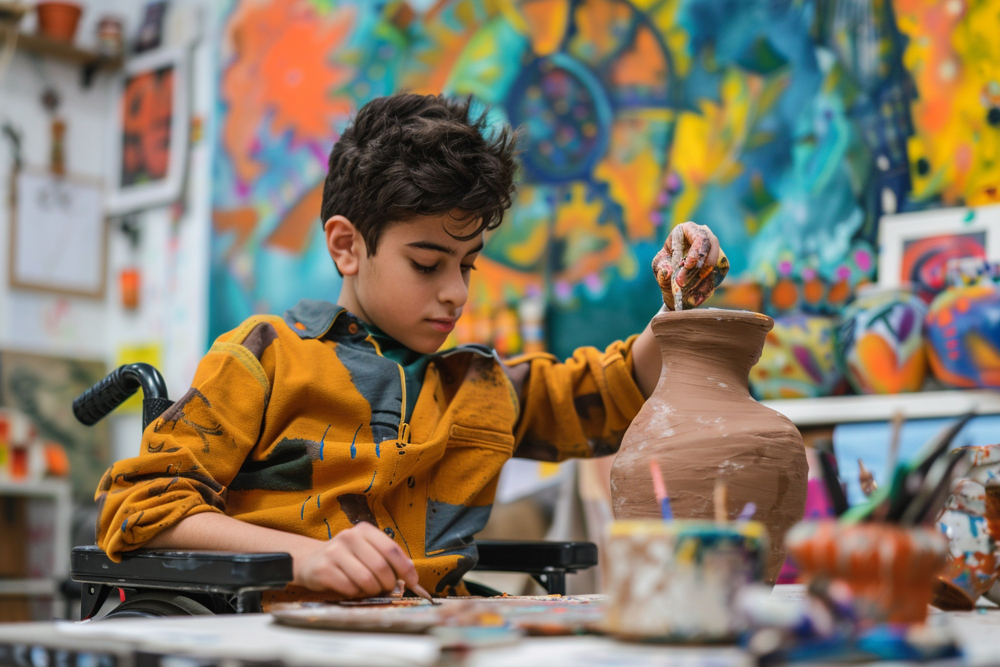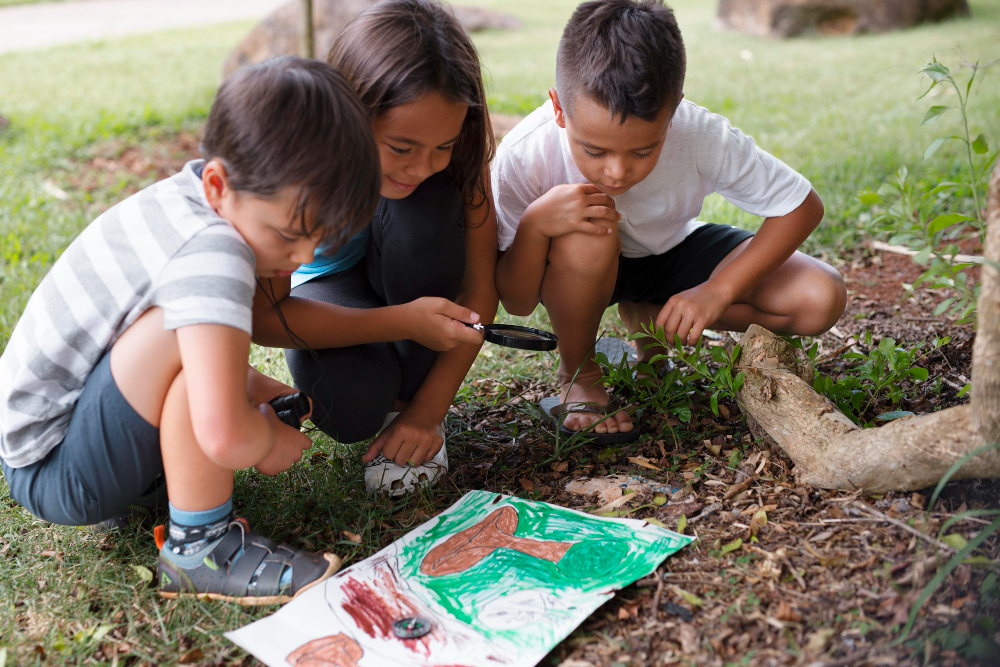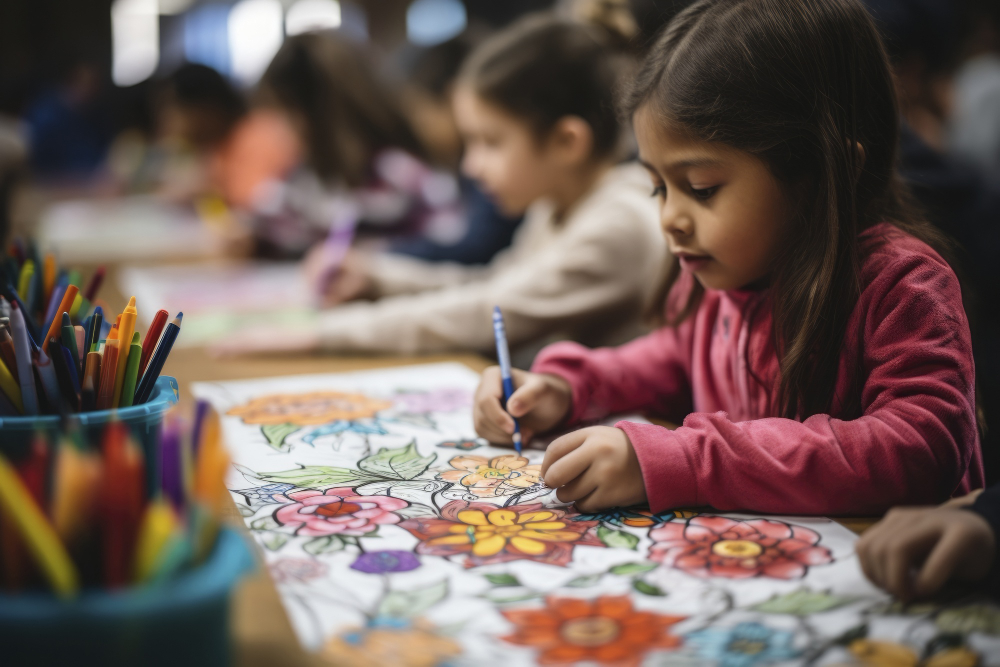Extracurricular activities play a vital role in a student’s overall development, particularly in institutions like military schools, where discipline and physical fitness are emphasized. Whether a student is attending a military school in Maharashtra or a junior boarding school, engaging in activities outside the classroom fosters skills that cannot be learned through traditional academics alone. Schools like the Trimurti Pawan Pratishthan focus on extracurricular activities because they complement the academic curriculum, build essential life skills, and contribute to the holistic development of students. Here’s why these activities are crucial for student growth.
1. Promoting Physical Fitness and Health
Physical fitness is a top priority in military schools, such as Trimurti Education. Participating in sports like wrestling, cricket, or horse riding not only keeps students physically active but also instills discipline and a healthy lifestyle. Many military boarding schools in Maharashtra offer access to specialized sports academies, such as Rifle Shooting, Kickboxing, and Judo Academies, ensuring that students can find activities that align with their interests.
Physical fitness is particularly important for students preparing for careers in the armed forces, such as those training for the NDA. Schools like Trimurti Education, a top military school in Maharashtra, prepare students for the physical challenges they may face in military careers by emphasizing activities like fitness training, drills, and sports.

2. Building Leadership and Teamwork
Extracurricular activities also teach students critical leadership and teamwork skills. Whether through team sports like football and cricket or clubs like debate and drama, students in military and residential schools in Maharashtra learn how to work with others towards a common goal.
Military schools often integrate these activities into their broader mission to build leaders. Students in a military training school in Maharashtra develop leadership skills and learn how to follow instructions, collaborate with peers, and lead by example. Activities like drill practice, parades, and sports require students to communicate effectively and lead with integrity.

3. Encouraging Discipline and Time Management
One of the hallmarks of a military school for boys and girls is its structured environment, which teaches students the importance of discipline. Extracurricular activities add another layer of structure to the school day, helping students balance their time between academics, physical fitness, and personal interests. For example, students attending a military boarding school for boys in Maharashtra may participate in both academic activities and sports like table tennis or judo. This balance teaches them how to manage their time efficiently and stay focused on their goals.
In addition to learning time management, students also develop a sense of responsibility. Participating in after-school activities ensures that they are accountable for their actions, whether it’s showing up to practice on time or meeting their academic commitments.
4. Enhancing Social Skills and Building Friendships
Extracurricular activities create opportunities for students to interact with their peers outside of the classroom. Students in junior boarding schools or female boarding schools often find that participating in sports, clubs, or arts programs helps them build lasting friendships and enhances their social skills. At a military school for girls in Maharashtra, students may engage in activities like karate or horse riding, providing them with an opportunity to bond with others over shared interests.
This social development is crucial for building self-confidence, which will benefit students both academically and personally. A military school for boys in India often emphasizes teamwork and camaraderie, which fosters a sense of belonging and community among students.
5. Preparing for Future Careers
Extracurricular activities can also prepare students for future careers, especially those interested in joining the military. Schools like the Maharashtra Sainik Academy and Sainik Defence Academy focus on building the physical and mental endurance required for military careers. These schools integrate military training into their extracurricular programs, helping students develop the skills necessary to succeed in military academies like the NDA.
By participating in rifle shooting, obstacle courses, and physical drills, students develop the stamina and resilience required for military training. A military school in Maharashtra for girls or boys prepares students not just for physical challenges but also for leadership roles within the military.

6. Fostering Creativity and Critical Thinking
Extracurricular activities aren’t limited to sports; they also include the arts and creative pursuits. Drama clubs, music lessons, and art classes allow students to express themselves creatively and develop their critical thinking skills. A military academy near me may offer a variety of creative outlets, from debating teams to cultural programs, which encourage students to think outside the box and explore different perspectives.
This creativity fosters problem-solving skills that are crucial in both academic and real-world settings. By participating in creative extracurriculars, students at a military school for boys near me can improve their ability to analyze situations and come up with innovative solutions.
Conclusion
Extracurricular activities are an essential part of the educational experience at military boarding schools in Maharashtra and other academic institutions. Whether students are training at the NDA School in Maharashtra or participating in a kickboxing academy, these activities help them develop into well-rounded individuals prepared for future challenges. Schools like Trimurti Pawan Pratishthan, one of the best military schools in Maharashtra, ensure that students have access to a wide range of extracurricular opportunities that promote discipline, leadership, physical fitness, and social development. By engaging in these activities, students not only enhance their academic learning but also prepare themselves for future success, whether in the military or other professional fields.


